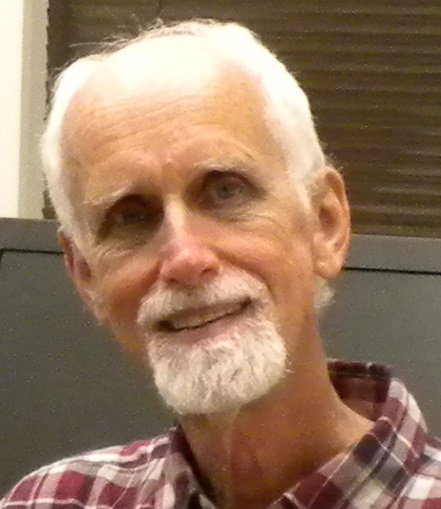Spirit sources

The following is taken from my latest book When Did You Ever Become Less by Dying? Afterlife: The Evidence. In the last chapter I list some of the advantages we could expect if we as a global society began to pay more attention to the spirit sources you and I find so inspiring and helpful:
1. We would picture the afterlife in a new way. Many religious people live with notions of a heaven that is static, even boring, with nothing more left to achieve; or vague, with nothing concrete and colorful and beautiful to recommend it. The heavens would be reconceived as a challenging, stimulating, dynamic environment.
2. Our lives would be seen as “going somewhere” or “adding up to something.” We would grow in confidence that a Source of immense proportions is at the helm of a meaningful soul-building process.
3. We would see that life doesn’t end at death, that those cut off early in life would not be denied their share, and that ancestors and their descendants would be reunited.
4. We would be able to deal better with our grief over the death of a young child, or a son lost in combat, or a daughter lost to breast cancer, for we would know they were still very much alive and in good hands.
5. We would rise above the crippling melancholy that fear of personal extinction presently brings to billions of us.
6. We would see why it is rational to give play to the near universal instinct to pray, and through prayer help alleviate loneliness and despair in the face of personal tragedy.
7. We would find strong support for the conviction that good actions meet with a happy destiny and selfish or criminal actions with the opposite. This “law of karma” has through the centuries provided the glue that helps societies stay more or less law-abiding, and it is affirmed over and over by spirit sources.
8. The growing perception of a link between loving service to one’s neighbor and a happy outcome following death would gradually change society for the better.
9. Young people would find incentive to get serious about their lives and give back something meaningful to the world. The law of karma would help them resist the temptation to throw their lives away in drugs and alcohol.
10. Spirit sources tell why suffering and pain are necessary and essential features of our world. Once understood, the current epidemic of suicide, especially among middle-age males, would abate, and karmic considerations would add further incentive for “toughing it out.”
11. A deepening, widening belief in the law of karma would lead to less crime, fewer prisoners, and more tax dollars for education, infrastructure repair, and green technology.
12. A deepening, widening belief in a plausible, attractive afterlife would discourage those near death from taking heroic measures to extend their lives a few more weeks—a costly choice that grows out of the fear that this is the only life there is, and that, according to all authorities, the world cannot afford.
13. A deepening, widening belief in a plausible, attractive afterlife would discourage rampant greed and encourage a spirituality of compassion. More billionaires would join Warren Buffet’s Billionaire Club, and the enormous contrast between the wealthy and the impoverished of the world would be attenuated.
14. Consumption of the world’s resources would be reduced as people came to see that this isn’t their only chance at happiness.
15. Racism and sexism would gradually diminish as society began to get used to identifying persons by their souls, which have no color or sex.
16. Gay and transgendered persons would find rational accounts in spirit literature for their orientations that in no way cast them as inferior.
17. The worldview unveiled here would uplift women as the Creator, or Divine Source, or God was elevated beyond maleness, as is prevalent everywhere in spirit literature.
18. A greater emphasis on the soul would discourage the present fixation on the body and create more psychological space for deeper reflection and more wholesome pursuits.
19. It would attract materialist-oriented scientists to a worldview devoid of supernatural absurdities and replace them with one governed by natural law—a natural law encompassing not only our physical world but our environment on the other side of death as well. Perhaps a new science of astral matter, already begun, would ripen.
20. It would lead to a renewed emphasis on music education and the arts in general as funds became available for a better life. This idea has had a profound impact on civilization throughout human history up to our own day. It has inspired many, if not most, of the great works of art: the Pyramids, the Parthenon, Chartres Cathedral, Bach’s Mass in B Minor, the Bhagavad Gita, the Bible; the list goes on and on.
21. Those grieving the loss of loved ones frequently report visits from the deceased but fear criticism from an uncomprehending world. A science that “verticalizes” our world would authenticate these visits and bring relief, even joy, to the bereaved.
22. Fundamentalist religion would lose much of its appeal as the more spacious, inclusive worldviews opened up by this research replaced the divisive ideologies of bad religion with their emphasis on an eternal hell for nonbelievers. Resort to war based on these ideologies would wane, and world peace become more achievable.
23. Certain forms of mental illness would be properly diagnosed as having a spiritual etiology and would be appropriately treated. This treatment would bring relief to thousands of patients locked up in mental hospitals and to their families.
Many of us hunger for a reliable revelation telling us that life here and now is meaningful and good, that each of us has an important part to play in its proper unfolding, that we are accountable for all we do, and that the spirit-denying materialism all around us is a mistake. Authentic channels through which the “dead” speak are the closest thing to the voice of God that our planet has. The world ahead, unlike ours, is fascinating and fair; and if we pay attention to the many hints of its reality, our world will be better off for it.
My latest book (When Did You Ever Become Less by Dying?) is one of the best places to go for secular, or nonreligious, evidence to support survival of death. It covers the nine major types of evidence. Probably best to avoid books like mine if survival leads to feelings of acute discomfort.
Stafford Betty
California State University, Bakersfield
